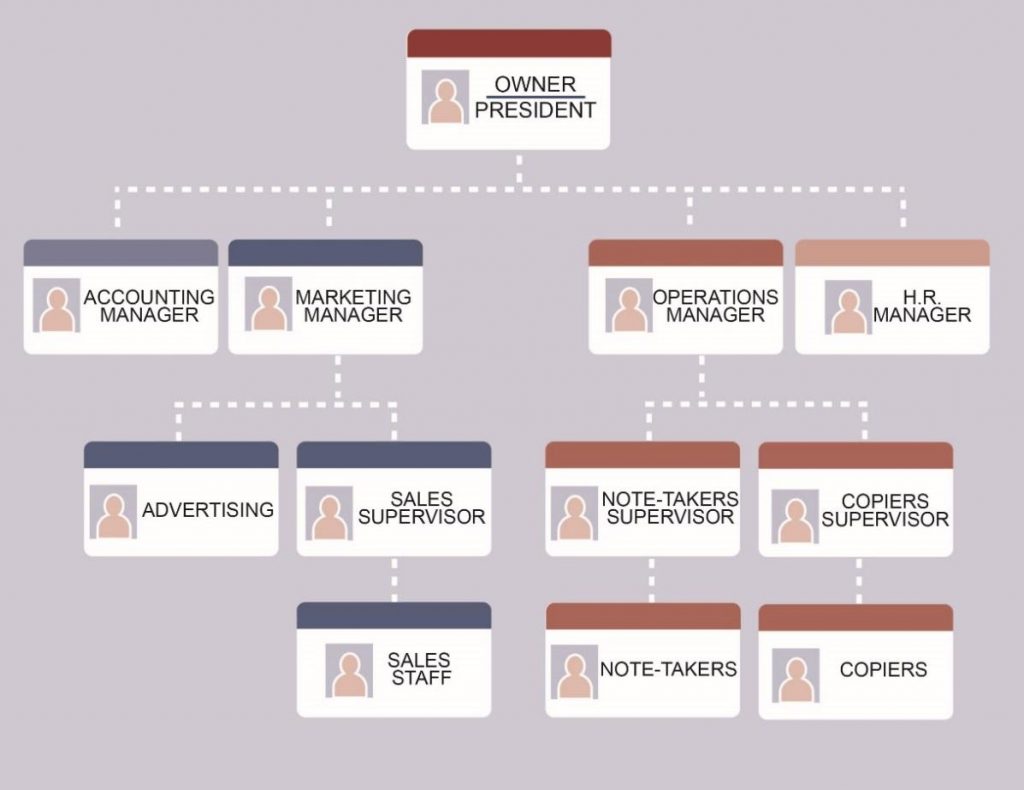Applying Your Skills
Applying Your Skills at Notes-4-You
So, what types of skills will managers at Notes-4-You need? To oversee note-taking and copying operations, first-line managers will require technical skills, probably in operations and perhaps in accounting. Middle managers will need strong interpersonal skills to maintain positive working relationships with subordinates and to motivate them. As president (the top manager), because you have to solve problems and come up with creative ways to keep the business growing, you’ll need conceptual skills. And everyone will have to communicate effectively: after all, because you’re in the business of selling written notes, it would look pretty bad if your employees wrote poorly. Finally, everyone will have to use time efficiently and call on problem-solving skills to handle the day-to-day crises that seem to plague every new company. Here is an example of an organization structure Notes-4-You might employ:

Key Takeaways
- Management must include both efficiency (accomplishing goals using the fewest resources possible) and effectiveness (accomplishing goals as accurately as possible).
- The management process has four functions: planning, organizing, leading, and controlling.
- Planning for a business starts with strategic planning—the process of establishing an overall course of action.
- Management first identifies its purposes, creates a mission statement, and defines its core values.
- A SWOT analysis assesses the company’s strengths and weaknesses and its fit with the external environment.
- Goals and objectives, or performance targets, are established to direct company actions, and tactical plans and operational plans implement objectives.
- A manager’s leadership style varies depending on the manager, the situation, and the people being directed. There are several management styles:
- An autocratic manager tends to make decisions without input and expects subordinates to follow instructions.
- Managers who prefer a democratic style seek input into decisions.
- A free rein manager provides no more guidance than necessary and lets subordinates make decisions and solve problems.
- Transactional style managers exercise authority according to their rank in the organization, let subordinates know what’s expected of them, and step in when mistakes are made.
- Transformational style managers mentor and develop subordinates and motivate them to achieve organizational goals.
- The control process can be viewed as a five-step process: (1) establish standards, (2) measure performance, (3) compare actual performance with standards and identify any deviations, (4) determine the reason for deviations, and (5) take corrective action if needed. Benchmarking is a process for improving overall company efficiency and effectiveness by comparing performance to competitors.
- Top managers need strong conceptual skills, while those at midlevel need good interpersonal skills and those at lower levels need technical skills.
- All managers need strong communication, decision-making, and time management skills.

